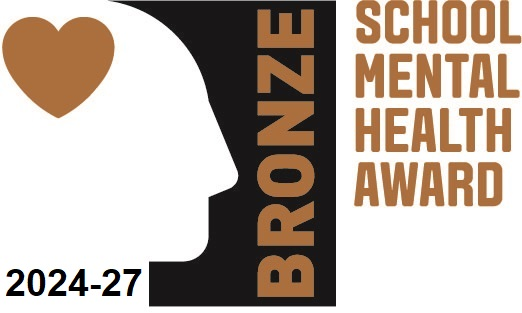ENGLISH
Please click on the links below:
What is English about?
In Secondary education, the study of English is divided into three stands:
- The study of English Literature - novels, plays and poetry. We study a wide variety of texts from across the English literary heritage, finding parts of ourselves and those we know and love within them, as well encountering completely new types of people, settings and ideas throughout the process.
- The study of English Language, mostly through the reading and study of non-fiction texts. We read a diverse range of extracts, articles and whole texts and think about why each writer has chosen to write in the way that they have. We consider how the intended audience for and purpose of the text has a direct impact on the things that are written and how we, the reader, read it.
- The development of Spoken English, a person’s ability to use their skills in oracy to communicate clearly through the words they use. We speak with purpose in English lessons, constantly communicating ideas about what we’ve read and thinking carefully about the words, tone and register we make use of to do that. We speak formally, the whole class attentively listening as we do, and we speak informally, with a partner or amongst a small group. Each time we speak, we develop the skills we possess in Spoken English and, over time, we hone and refine these skills in order for us to be able to communicate well through speech.
What do we teach in English and why?
While the three strands of Secondary English are separate, they each possess skills requisite for the study of all three of them and, as such, students learn to use the same skills in each of them:
- How writers write: we learn this through reading different writers’ writings
- How to analyse how writers write: we learn this through the annotation and discussion of models, the application of models and consistent opportunities to write for extended periods of time.
- How to find authorial intent: we learn this through studying the most relevant contextual information about a writer and their text, then we connect it to what the writer is doing and why we think that might be.
- How to write about authorial intent: we learn this through the annotation and discussion of models, the application of models and consistent opportunities to write for extended periods of time.
What does English enable our students to do?
- Read with deepening confidence and for pleasure, both fiction and non-fiction texts
- Write and speak in standard English and with technical accuracy
- Think, write and speak analytically about texts they’ve read
- Think, write and speak about why texts they’ve read have been written as they have
How is the curriculum structured in English?
In KS3, students are taught English for four hours a week and they alternate between studying English Language and English Literature. In KS4, students are taught English for four hours a week, two hours are given to the study of English Language and two hours are given to the study of English Literature. In KS5, students are taught the strand of English they chose – Language or Literature – for five hours a week.
What specifications do we use?
GCSE: English Language AQA (8700) English Literature AQA (8702)
A-LEVEL: English Language AQA (7702) English Literature Edexcel 9ET0
What are the links between English and other subjects?
English is the bedrock to all learning because it requires students to read, understand and both write and speak about what they’ve understood with clarity and technical accuracy. As such, the study of English is essential for all other learning in every other subject.
What are the future careers students can take when they study English?
Journalism; teaching; writing; advertising; public relations; lexicographer; editing and publishing; copywriting; academic researcher; academic writer; social researching; speech and language therapist.








